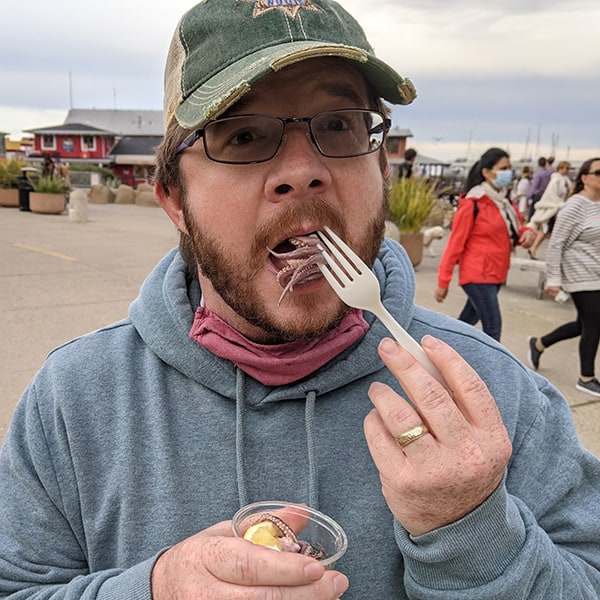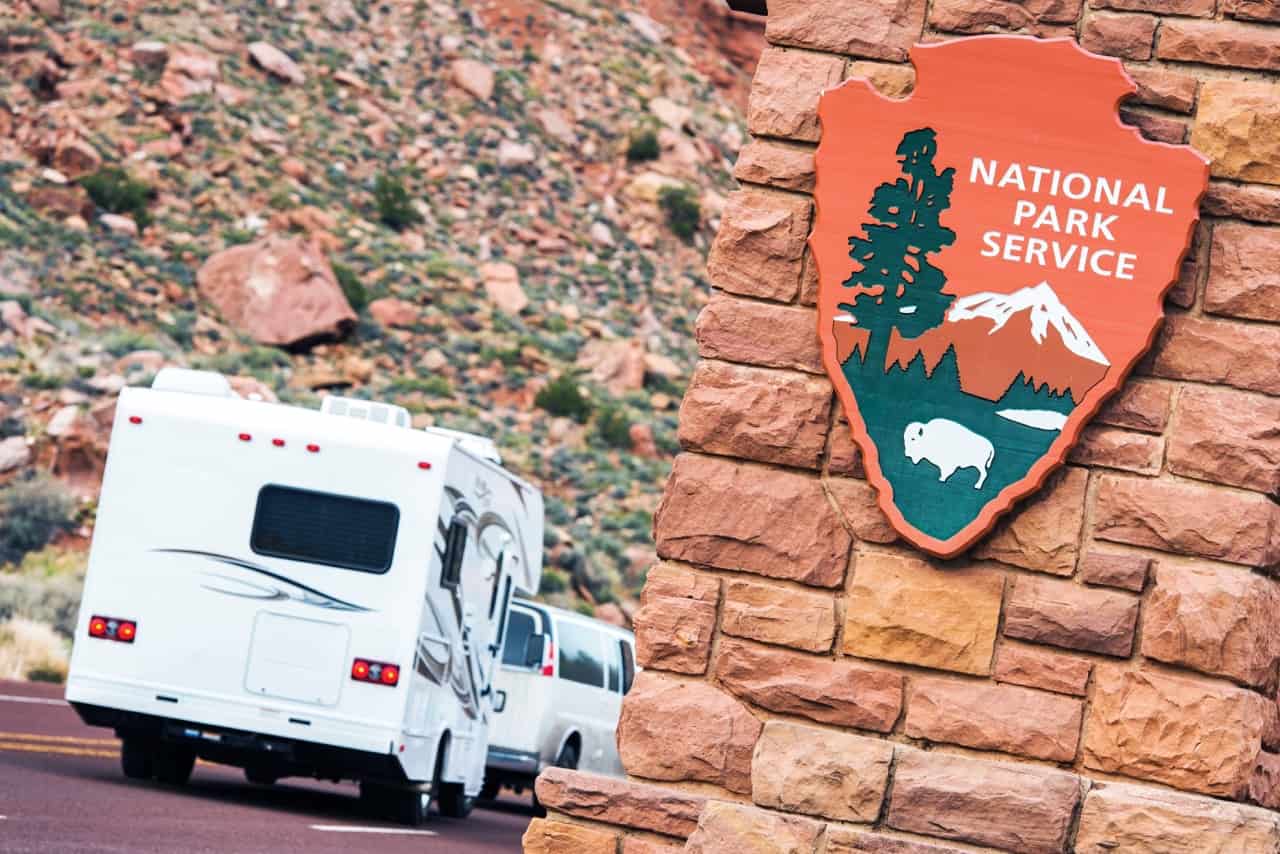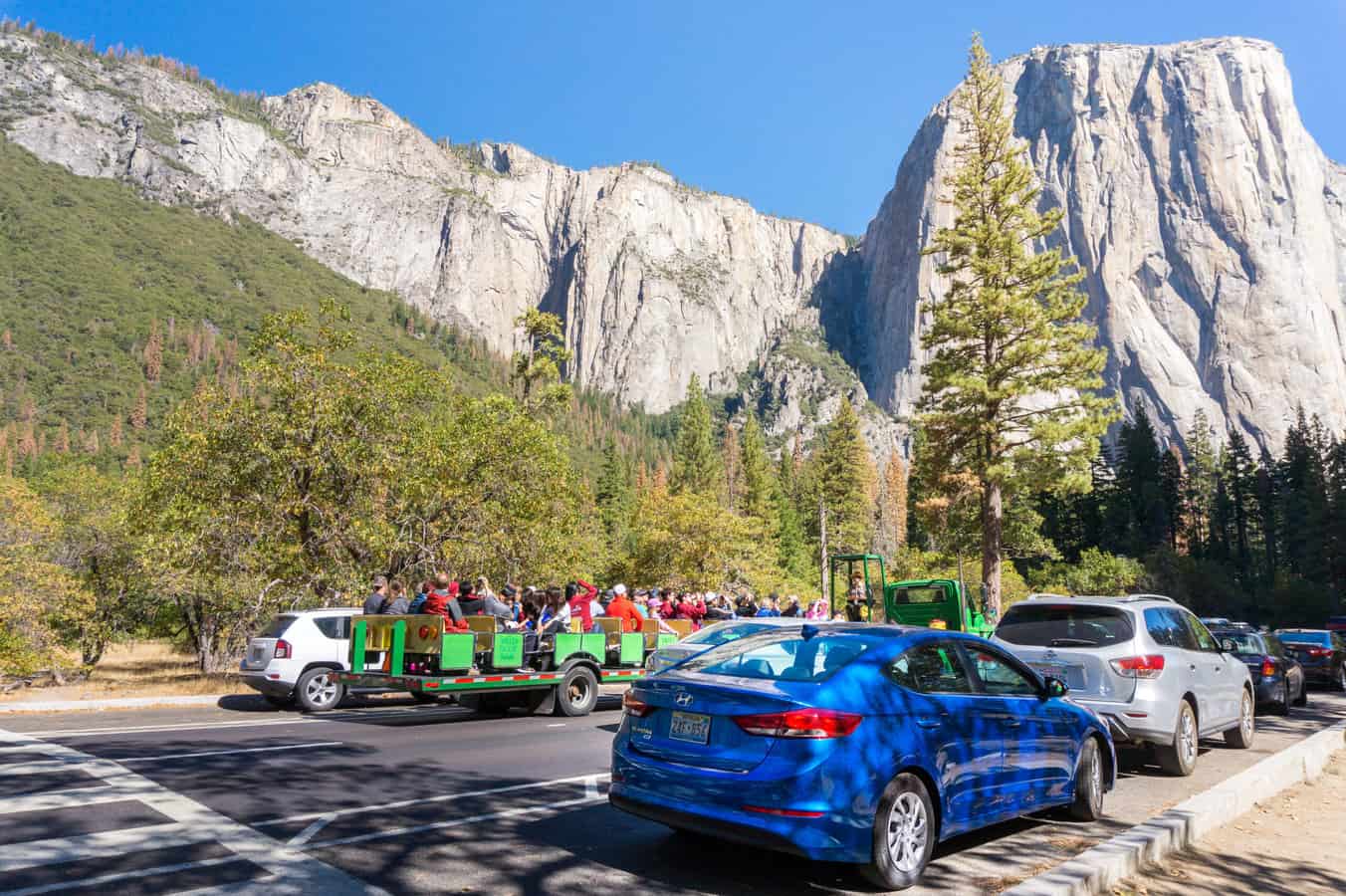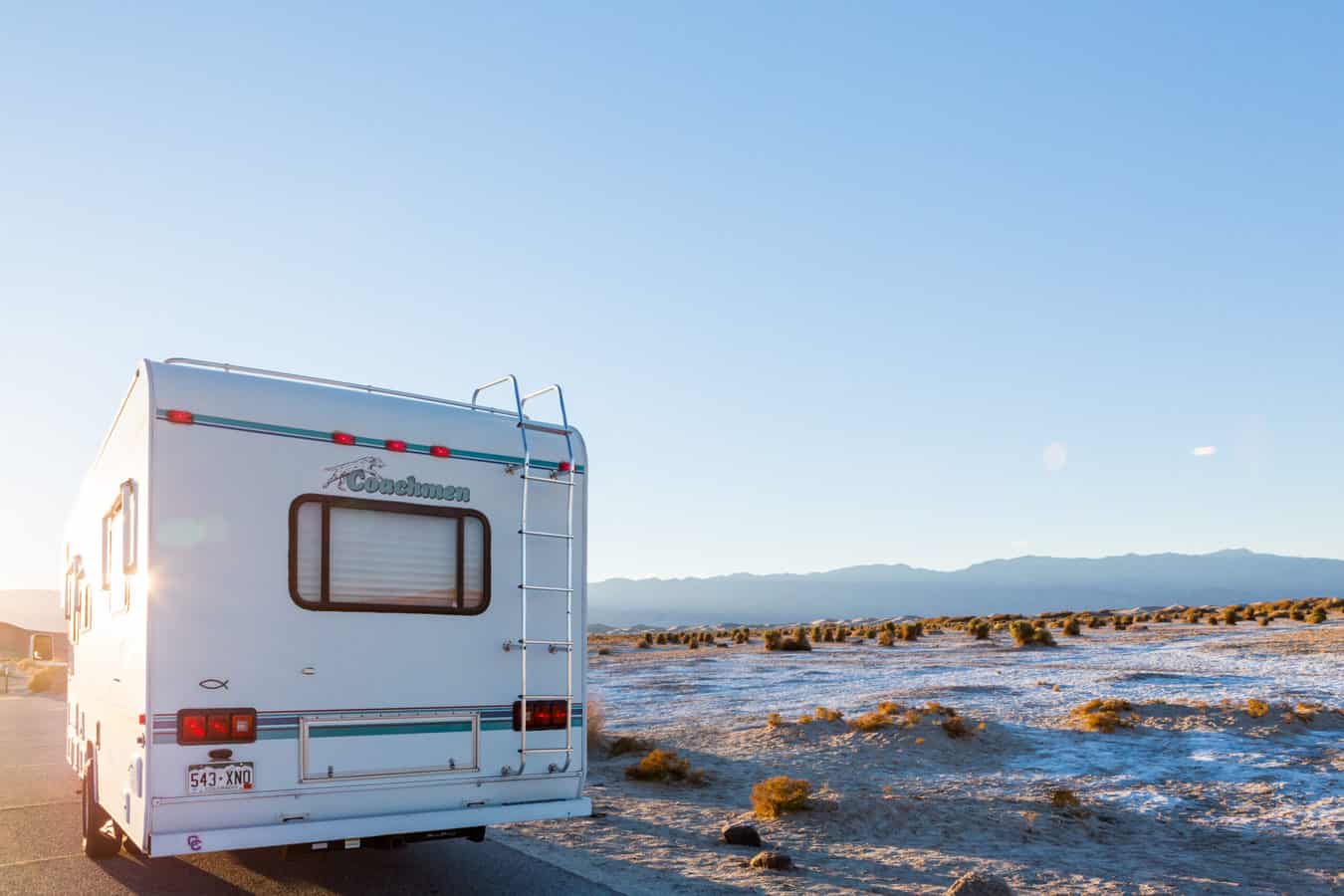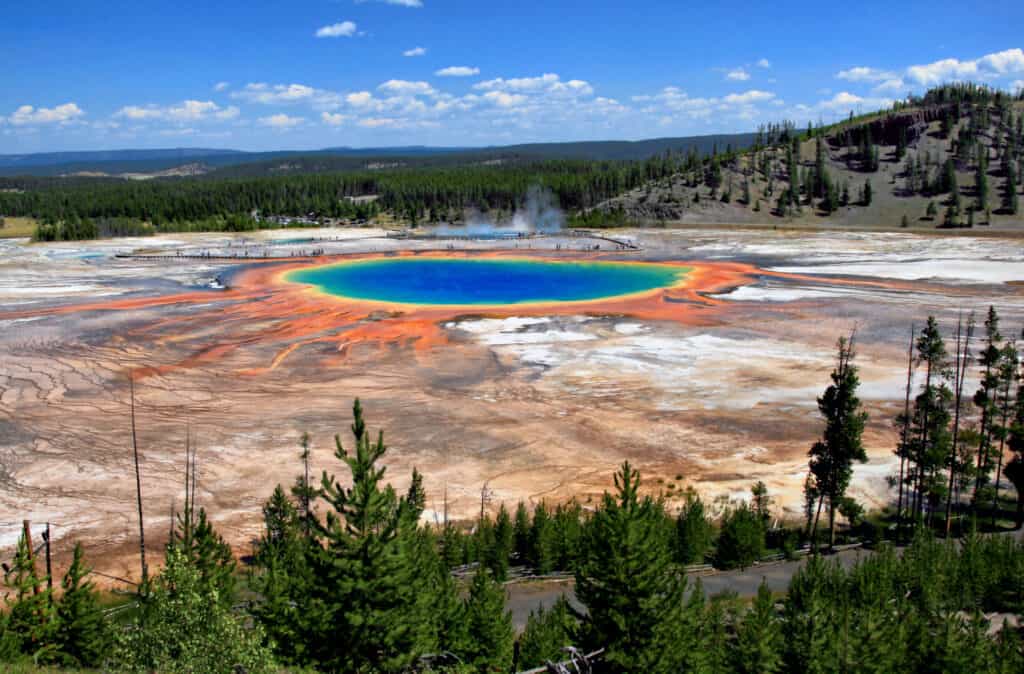
Visitors To National Parks Generate 41 Billion Dollars In Economic Impact
Congress passed the Yellowstone Act in 1872 which made Yellowstone the first national park. They could not have known that one day there would be over 400 areas of natural wonder and protected landscape that Americans and visitors from all over the world would enjoy. Nor would they have guessed it would require its own government agency, the National Park Service.
One common way people love to see national parks is through the lens of RV camping. Spending time camping away from it all in the natural beauty of a national park is the perfect vacation for many, and the numbers prove it.
The economic benefit of National Parks
The U.S. Secretary of the Interior David L. Bernhardt recently released the annual economic benefit of national parks to the U.S. and local economies.
Overall, NPS visitors put a whopping 41.7 billion dollars in economic output into the national economy. That includes visitor spending, labor income, and value added to surrounding communities.
It’s a vast economic puzzle of companies, employees, communities, and visitors all supporting each other. In the end, every $1 spent by taxpayers returns approximately $10 to the economy. Campers and RVers make up almost half a billion dollars of that economic growth.
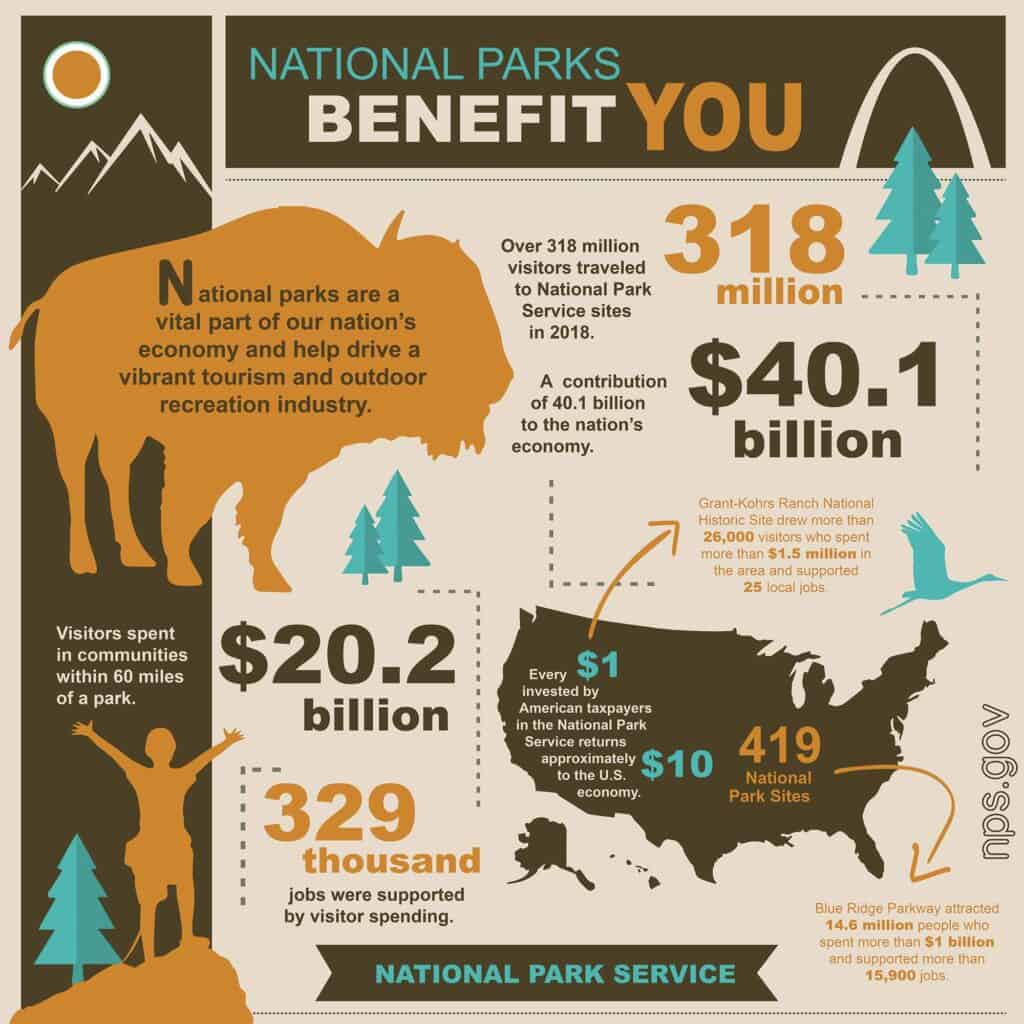
The report states that visitors to the park system support 341,000 jobs nationwide. About a third of those jobs are in the camping, lodging, grocery, gas, and recreation sectors. All of those sectors can be directly linked to not just individuals traveling by car but RV travelers as well.
The future of National Park’s economic impact
In addition to releasing the report, Bernhardt stated,
“These treasured places provide respite and recreation for the American people, in addition to vital economic support to gateway communities across the country.”
He also stressed the importance of the continued maintenance of those parks beyond the attention they generally get.
“Safely increasing access to national parks and other public lands supports individual and collective physical and mental wellness.
It also benefits park gateway communities where millions of visitors each year find a place to sleep and eat, hire outfitters and guides, and make use of other local services that help drive a vibrant tourism and outdoor recreation industry.”
Many consumer surveys are saying that more people than ever are thinking of RVing as a means of travel and recreation. That could mean the national parks will be on more people’s lists for a while. No one knows exactly how the continuing economic recovery is going to take place, but the national parks and surrounding areas might just play a significant role.
If you plan on making a trip to our national parks, you may want to avoid these crowded parks during the peak season.

